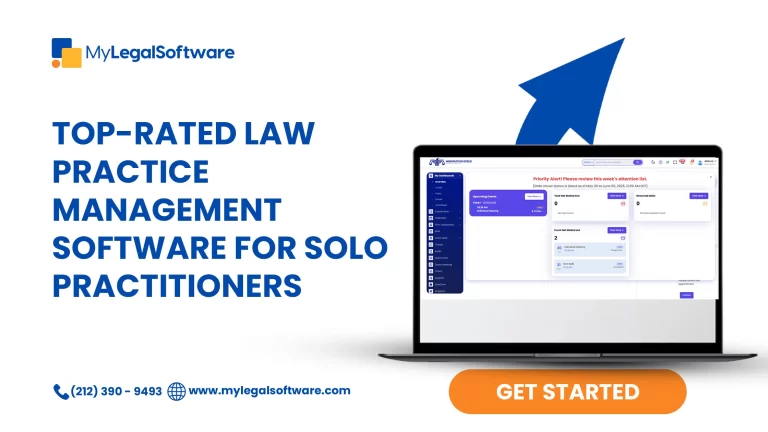Nowadays, it is advisable that lawyers shouldn’t run a local business that serves a geographical area — without a good local SEO strategy.
Google’s emphasis on local searches shows that lawyers need to stay informed about the latest SEO trends and best practices to remain competitive and relevant.
Therefore, Lawyers who neglect to implement a local SEO strategy may miss out on potential clients who conduct “near me searches” on Google.
These individuals are actively seeking local businesses, including law firms, and may not find the lawyer’s services if they are not optimized for local search.
Importance of Local SEO for Lawyers.
Local SEO (Search Engine Optimization) is a basic essential practice for lawyers to effectively reach and connect with potential clients in their local areas.
According to a 2019 Statista survey, approximately one-third of online consumers conduct daily internet searches to find local businesses.
For instance, Based on a survey conducted in the United States in November 2021, it was found that 21 percent of consumers used the internet daily to search for local businesses.
Moreover, 35 percent of respondents reported using the internet for this purpose multiple times each week. Surprisingly, only 1 percent of those surveyed stated that they didn’t search for local businesses online.
The above mentioned statistics indicate that lawyers need to focus on enhancing their local search visibility to attract clients from their geographic area effectively.

Services Local SEO can render to law firms
1. Local Keyword Research for lawyer firm websites:
Local keyword research involves identifying specific search terms and phrases that potential clients in your local area are using to find legal services.
By targeting relevant local keywords and finding the most effective keywords that align with your practice areas and location, It will work as a powerful strategy to attract local clients who are actively seeking legal assistance in your area.
Lastly, always remember that by incorporating local keywords into your website’s content, meta tags, and headers, you’ll be one step closer to connecting with potential clients in your local community.
2. Link Building
So, what exactly is local link building? It’s all about acquiring high-quality backlinks from other local websites, directories, and legal associations in your area.
These links act like votes of confidence for your law firm’s website, telling search engines that your content is valuable and relevant to your community.
When reputable local websites link back to your law firm’s site, it not only boosts your website’s authority but also helps in local search rankings. This means that when people in your area search for legal services, your website is more likely to show up in the top search results.
To get started with local link building, consider reaching out to local business partners, community organizations, or legal directories to request a link to your website.
Additionally, creating valuable and shareable content like legal guides, blog posts, or infographics can naturally attract links from other websites.
Remember, the key is to focus on quality over quantity. Aim for links from reputable, locally relevant sources rather than spammy or irrelevant sites.
Google values organic and genuine link relationships, which will ultimately benefit your law firm’s online visibility and reputation.
So, don’t overlook the power of local link building as a local SEO strategy for your law firm.
3. Location-Specific Content Creation
Location-specific content creation is a vital SEO service for lawyers that focuses on tailoring content to target specific geographic areas. By using location-based keywords and addressing local legal matters, lawyers can effectively target potential clients in their target regions. This strategy boosts the law firm’s local SEO, improves search rankings in local results, and establishes the firm as a reputable local authority.
The creation of location-specific content helps lawyers connect with their local community and build trust and credibility among potential clients. By addressing local events, legal regulations, and community updates, lawyers demonstrate their commitment to serving the needs of the local clientele. This personalized approach humanizes the law firm’s brand, fosters a sense of connection, and enhances the overall user experience for local audiences.
Furthermore, location-specific content offers long-term SEO benefits. It can attract inbound links from other local websites, further enhancing the law firm’s local search rankings and authority.
Ultimately, location-specific content creation is an integral part of a comprehensive local SEO strategy that contributes to the long-term success of a law firm.
Optimizing Google My Business (GMB) Listing
Optimizing a Google My Business (GMB) listing is essential for lawyers to enhance their online presence and attract potential clients.
How to work with a Local SEO expert for law firm
How lawyers work to find a Local SEO expert for their law firms can determine how successful their SEO strategy will turn out.
Below is a step-by-step guide on how to collaborate effectively with a Local SEO expert:
1. Research to Choose an Expert:
Start by researching Local SEO experts or agencies that specialize in serving law firms. Look for professionals with a track record of success in local SEO and positive client reviews. Request recommendations from colleagues or other law firms for trusted referrals. Example of places you can start looking are:
2. Define Your Goals:
Clearly communicate your law firm’s goals and objectives to the Local SEO expert. Discuss your target audience, specific practice areas, and the geographic regions you want to target. Aligning your goals will help the expert tailor their strategies to meet your unique needs.
3. Provide Access to Information:
To optimize your law firm’s online presence, the Local SEO expert will need access to essential information such as your website, Google My Business listing, social media accounts, and any existing SEO efforts. Ensure you grant them the necessary access to perform their work effectively.
4. Review On-Page SEO Elements:
Together with the expert, review and optimize your law firm’s website for local SEO. This includes incorporating targeted local keywords into page titles, meta descriptions, headers, and content. Ensure that the website is user-friendly, mobile-responsive, and loads quickly.
5. Collaborate on Content Creation:
Content marketing is crucial for local SEO success. Work together with the expert to create valuable and relevant content for your target audience. This can include blog posts, articles, legal guides, or informative videos that address local legal issues.
6. Stay Informed:
As you collaborate with the Local SEO expert, take the opportunity to learn more about SEO strategies and best practices. Staying informed will help you better understand the efforts being put into optimizing your law firm’s online presence.
7. Be Patient and Communicate:
Local SEO is a process that takes time to yield results. Be patient and maintain regular communication with the Local SEO expert. Share any changes in your business or services that may impact the SEO strategy.

Monitoring Performance of your Local SEO Campaigns
Monitoring the performance of your Local SEO efforts as a lawyer is crucial to assess the effectiveness of your strategies and make data-driven improvements especially when it is being outsourced. Here’s how you can monitor your Local SEO performance:
1. Local Search Rankings:
Keep track of your law firm’s rankings in local search results for relevant keywords. Ensure that you have a working system that allows you to know the progress of your campaigns from experts.
2. Website Traffic Analysis:
Use website analytics tools like Google Analytics to analyze traffic to your law firm’s website. Pay attention to the sources of traffic, including organic search, local search, and referrals, to gauge the effectiveness of your Local SEO strategies.
3. Conversion Tracking:
Set up conversion tracking on your website to measure specific actions that indicate a potential client’s interest, such as form submissions or appointment bookings. This data helps you understand the conversion rate of your Local SEO efforts.
4. Local Citations:
Monitor the number and quality of local citations (mentions of your law firm’s NAP information on other websites) and backlinks (links from other websites to your site). Tools like Moz or Ahrefs can help you track these metrics.
5. Competitor Analysis:
Keep an eye on your local competitors’ online presence and strategies. Analyze what they are doing well and identify opportunities for improvement in your own Local SEO efforts.
6. Local Community Involvement:
Assess the impact of your law firm’s involvement in local community events or partnerships. Engaging with the community can positively influence your local reputation and brand visibility.
7. Regular Reporting:
Create periodic reports summarizing key Local SEO metrics and insights. Regular reporting will help you track progress over time and make informed decisions for future optimization.
By consistently monitoring your Local SEO performance using these strategies, you can identify areas of strength and areas that need improvement. This data-driven approach will enable you to refine your Local SEO efforts more effectively







